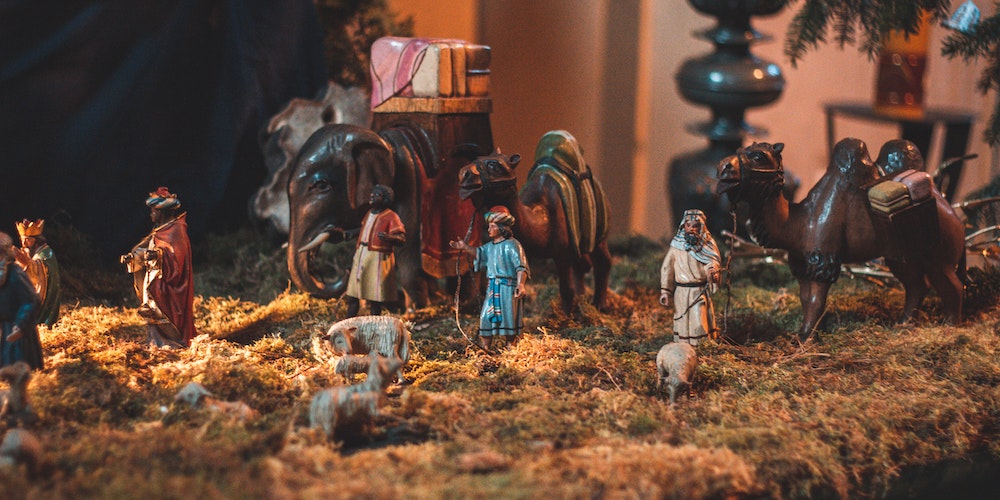Kevin Smith is known for his off-the-wall style of humor. The New Jersey-born screenwriter, director, and actor's views on popular culture, politics, sex, and religion are pervasive throughout his films. Fans of Kevin Smith have made Jay and Silent Bob's Secret Stash, a comic book shop that he owns in Red Bank, the unofficial heart of their fandom in the real world. In addition, the statue of Buddy Christ can be found in the store's rear room, which is enclosed in glass. This affable messiah was first designed as a prop for Smith's fourth film, Dogma, which was released in 1999. Soon after, it became a popular attraction at the shop.
The sculpture known as "Buddy Christ" is a parody of the classic Roman Catholic depiction of Jesus, complete with long hair and a beard, robes, and a glowing heart placed on his breast. In addition, Smith's representation smiles, winks, and gestures at you while simultaneously delivering a hearty thumbs-up with the other hand. If you were raised up Catholic, the first time you see buddy christ figurine, it may cause you to feel a little of shock at the shameless parody of hallowed sculptures... but then you can't help but grin just like Buddy C. Doesn't matter. Jay and Silent Bob's Secret Stash is still operating as a profitable business, with racks of comic books, graphic novels, and other memorabilia lining the walls of the establishment. Smith has utilized it as a setting for the filming of many of his movies.
It is a site for his reality programme Comic Book Men, which debuted on AMC in 2012. The enormous yellow sign for the Quick Stop convenience store in Leonardo, which is where Smith filmed his first movie, Clerks, which was released in 1994, hangs over the counter where the cash register is located. Kevin Smith, the film's director, uses his own conviction that God has a sense of humor as a primary justification for the film's flagrant disdain and blasphemy of religion. The platypus is used as an example to support this claim. This is the type of logical leap that can keep an audience captivated for more than two hours. Both Loki and Bartleby, two angels, have been exiled from heaven and are now compelled to reside in the state of Wisconsin.
In their haste to go back home, the couple stumbles into a "loophole" at the doctrine of the Catholic church that enables them to be forgiven by just passing through an archway in a cathedral located in New Jersey. In order for them to enter paradise, they must first have their wings cut off, which transforms them into humans. After that, they must die. Bethany, who is Jesus, He explains to her that the end of all existence is possible if the angels are successful in their plan to exploit the flaw. In Dogma, every aspect of life has some kind of spiritual significance. Everything starts with a biblical truth, but then it's distorted so much that it's unrecognizable. Dogma inherits the honor for "most perverse" from Michael since Hollywood's portrayal of angels has never been very accurate, and the award was originally intended for Michael.
These angels indulge in vices such as drinking, smoking, cursing, murder, and sexual fantasies, despite the fact that they are unable to have sexual relations due to the absence of genitalia (this "restriction" is portrayed in detail). A so-called "13th apostle" named Rufus descends from the heavens, lamenting the fact that his account in the Bible was removed because he was black. In addition to this, he is adamant that Jesus was also of African descent, and he is working to get the Bible revised to include this information. Rufus's response to the question of whether or not he knew Jesus was, "Know him, that n—–r owes me 12 dollars."
The so-called "loophole theology" bases its arguments on the verse found in Matthew 16:19, in which Jesus teaches that whatever is bound on earth must also be bound in heaven, in an effort to demonstrate that people are able to exert control over God if they just "beat the system." Although it comes out that God is a woman, the angels always refer to God as "He" when they talk about him. Even though God is a woman. Strangely enough, despite all of the twists and turns, the movie never questions whether or not God, Jesus, angels, devils, heaven, or hell really exist at any point. It does, however, belittle Scripture, experiment with the "many paths to God" concept, and insult God.


